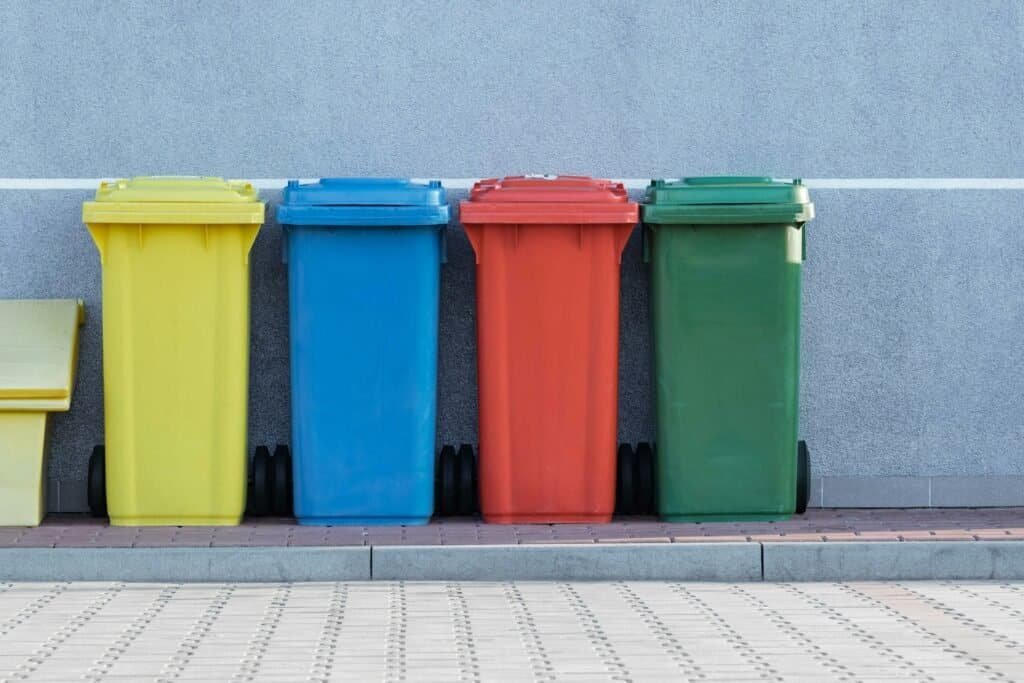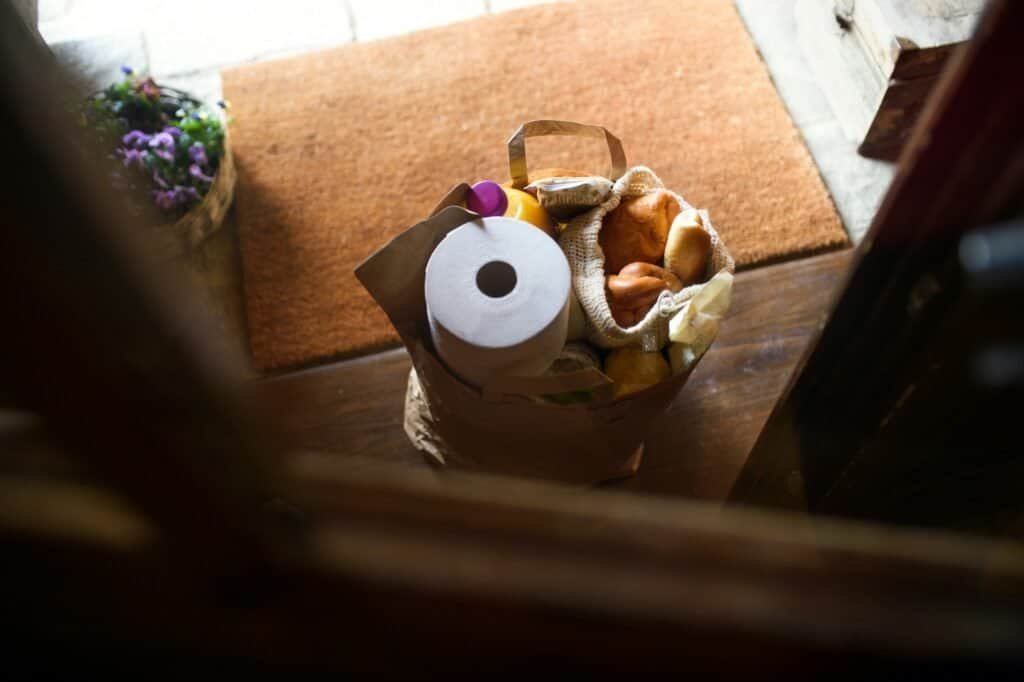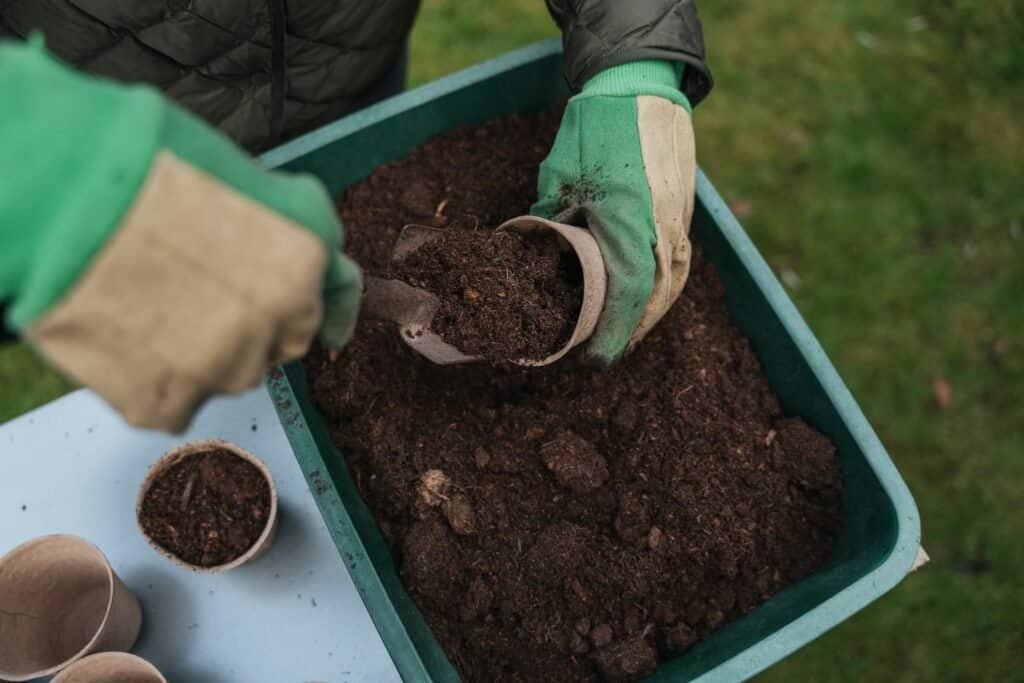As society grows more environmentally conscious, composting has become a popular method to recycle organic waste. Paper towels, often used in kitchens and bathrooms, are a common waste product that many people wonder if they can be added to compost heaps. This guide will explore whether these ubiquitous paper products belong in your compost bin or if they should be disposed of through other means.
In assessing the compostability of paper towels, it’s crucial to consider their material composition, the substances they’ve come into contact with, and the conditions under which they decompose. By understanding these factors, individuals can make informed decisions about managing their paper towel waste responsibly.
What Is a Paper Towel? – Composition and Uses
Paper towels are a staple in households and businesses, serving as a quick and convenient way to clean up spills, dry hands, and wipe surfaces. They are generally made from cellulose fibers, which can be derived from wood, cotton, or other plant materials. The composition of paper towels is designed to be highly absorbent and durable when wet, yet disposable after use.
The versatility of paper towels makes them suitable for a variety of tasks, from kitchen clean-up to craft projects. However, the convenience of paper towels comes at an environmental cost, prompting many to seek out paper towel alternatives that offer similar functionality without the waste.
Exploring the Compostability of Paper Towels
Composting paper towels is a topic of interest for those looking to reduce waste and contribute to soil health. The basic premise of composting is to turn organic materials into a nutrient-rich soil amendment through natural decomposition. Since paper towels are made from plant-based fibers, they are, in principle, compostable. However, the practicality of composting paper towels depends on various factors including their contamination with food, cleaners, or other substances.
When considering composting paper towels, it is essential to evaluate whether they’ve been used with substances that might not be suitable for a compost pile. For example, paper towels soiled with organic material like water or vegetable scraps are typically acceptable, while those contaminated with cleaning chemicals or oils are not. The composting process for paper towels is similar to that of toilet paper, another paper product frequently added to compost heaps under the right circumstances.
While composting paper towels can be a sustainable waste management practice, it’s crucial to distinguish between different types of paper towel waste. Towels used with harmless materials can be composted, thereby returning their nutrients to the earth and reducing landfill waste. This practice aligns with the growing trend towards sustainability and responsible resource use.
Factors Affecting Paper Towel Compostability
When delving into composting paper towels, it’s important to recognize the factors that influence whether they can be transformed into beneficial compost. These factors include the type of fibers used in the paper towel, the chemicals it may have come into contact with, and the overall balance of the compost heap. Understanding these nuances ensures that composting efforts are effective and environmentally sound.
To summarize, here are the key factors influencing the compostability of paper towels:
- Type of Material: The type of material a paper towel is made from plays a huge role in how compostable it will be. Paper towels made from 100% natural fibers are more compostable than those with synthetic additives.
- Contamination: Paper towels used with organic materials are suitable for composting, while those with chemical cleaners or oils are not. Ensuring that paper towels are free from harmful substances helps prevent potential contamination of the compost and maintains a healthy composting environment.
- Composting Conditions: The success of composting paper towels also depends on the conditions within the compost bin, such as temperature, moisture, and aeration. Proper management of these conditions ensures that paper towels break down efficiently and contribute positively to the composting process.

Step-by-Step Guide to Composting Paper Towels at Home
Composting paper towels at home is a straightforward process that can be accomplished with minimal effort. By adhering to a few simple steps, you can effectively incorporate paper towels into your composting routine without disrupting the balance of your compost heap.
- Ensure the paper towels are free from synthetic chemicals, oils, or any non-compostable materials.
- Tear the paper towels into smaller pieces to accelerate the decomposition process.
- Add the torn paper towels to your compost bin, mixing them with other green and brown compost materials to maintain a balanced carbon-to-nitrogen ratio.
- Regularly turn and aerate your compost pile to facilitate the breakdown of the paper towels and other organic matter.
By following these steps, you can successfully compost paper towels, thereby reducing waste and enhancing the quality of your compost. However, if you’re looking for paper towel alternatives, there are several options available that can minimize the need for composting paper towels altogether.
Health and Safety Considerations When Composting Used Paper Towels
Composting used paper towels comes with health and safety considerations that must be taken into account. One primary concern is the potential for paper towels to have absorbed cooking oils, which can attract pests and slow down the composting process. Additionally, certain oils can release a potent greenhouse gas known as methane during decomposition, which contributes to climate change.
To avoid these issues, it’s best to compost only paper towels that have been used with water-based substances or harmless organic materials. By being selective about which paper towels enter your compost bin, you can maintain a healthy and efficient composting system while mitigating any potential health risks or environmental harm. This careful selection helps ensure that your compost remains balanced and free from unwanted contaminants. Furthermore, it can enhance the quality of the compost produced, making it a more effective soil amendment. Regular monitoring and proper compost management are crucial for achieving optimal results and minimizing any negative effects.
Alternatives to Traditional Paper Towels
Given the environmental concerns associated with disposable paper towels, many people are turning to paper towel options that are more sustainable. These alternatives are designed to provide the same utility as traditional paper towels but with a reduced ecological footprint. From reusable cloths to biodegradable options, the market offers a range of products to suit various needs and preferences.
When selecting paper towel alternatives, it’s important to consider factors such as durability, absorbency, and lifecycle impact. By choosing products that align with sustainable practices, consumers can significantly decrease their waste output and contribute to a healthier planet.
Reusable Alternatives to Paper Towels
Reusable alternatives to paper towels are becoming increasingly popular as people seek to minimize their environmental impact. These options not only reduce waste but can also be cost-effective in the long run. Reusable cloths, for instance, can be washed and reused multiple times, offering a practical and eco-friendly solution for everyday cleaning tasks.
In addition to cloth towels, other items such as sponges and silicone mats offer reusable solutions for various household needs. By integrating these alternatives into their routines, individuals can cut down on their reliance on single-use paper towels and make a positive contribution to environmental conservation.
Comparing Paper Towels With Cloth Towels: Environmental Impact
When comparing the environmental impact of paper towels with that of cloth towels, several factors come into play. Cloth towels, which are part of the paper towel alternatives, contribute less to landfill waste and can be used repeatedly, thus conserving resources. However, they require water and energy to launder, which also has an environmental cost.
On the other hand, recycled paper towels offer a more sustainable option compared to traditional paper towels. While they are still disposable, their manufacturing process has a lower environmental footprint. Ultimately, the choice between paper and cloth towels should be based on a balance of convenience, sustainability, and the capacity to recycle or compost the used products.
Advanced Composting Techniques
For those seeking to maximize the benefits of composting paper towels, implementing advanced composting techniques can be fruitful. One such method involves creating a balanced composting environment that encourages the activity of anaerobic bacteria, which thrive in the absence of oxygen. This can be achieved by carefully layering paper towels with carbon-rich material, such as dried leaves or cardboard, to foster decomposition without the presence of air. This method can be particularly useful during colder months when traditional composting may slow down.
Another technique is to utilize bokashi composting, a process originating from Japan that uses a specific group of microorganisms to ferment organic waste, including paper towels, in a sealed container. This method is efficient and odorless, and it produces a nutrient-rich liquid that can be used as a natural fertilizer. Bokashi composting can accelerate the breakdown of quilted paper towels and other absorbent materials that might otherwise take longer to decompose in a standard compost pile.
Vermicomposting, or worm composting, is another effective way to deal with paper towel waste. In this process, red wiggler worms are used to convert organic waste into high-quality compost. Paper towels, especially unbleached paper towels, can be shredded and added to a worm bin as both a food source and bedding for the worms. This technique is beneficial as it repurposes waste while also producing compost rich in essential nutrients for plants.
Lastly, incorporating green cleaners into the composting process can enhance decomposition. These eco-friendly cleaning solutions can be used to pre-treat heavily soiled paper towels before adding them to the compost pile, ensuring that harmful chemicals do not enter the compost ecosystem. By utilizing these advanced composting techniques, individuals can turn paper towel rolls and other organic waste into valuable compost more efficiently while contributing to sustainable living practices.
The Environmental Cost: How Many Trees for Paper Towels?
The production of paper towels incurs a significant environmental cost, particularly in terms of deforestation. It is estimated that to produce one ton of paper towels, approximately 17 trees and 20,000 gallons of water are required. This calculation reveals the extensive use of natural resources that goes into manufacturing quilted paper towels and other similar products. As a result, the convenience of paper towels comes at a high environmental price, prompting consumers to consider the implications of their usage.
When considering the entire lifecycle of paper towel rolls, from the harvesting of trees to the energy-intensive production process and eventual disposal, the environmental impact becomes even more apparent. The majority of paper towels in the trash end up in landfills, where they contribute to methane emissions as they decompose. Methane is a potent greenhouse gas that exacerbates climate change, further highlighting the need for responsible disposal practices such as composting.
Furthermore, the reliance on virgin wood pulp for making plain paper towels means that sustainable forestry practices are essential to mitigate the damage. However, even with sustainable sourcing, the demand for paper towels continues to contribute to habitat destruction and biodiversity loss. The use of unbleached paper towels does offer a slightly reduced environmental footprint, as the bleaching process typically involves the use of harmful chemicals that can affect water quality.
In light of these environmental costs, it is crucial to recognize that each roll of paper towels represents a portion of a tree that was cut down. This understanding can encourage consumers to reduce their use of disposable paper products and to seek out alternatives such as cloth towels, which can be washed and reused, ultimately aiding in the pursuit of sustainable living.

Concluding Thoughts on Paper Towels and Compost
In conclusion, while paper towels are compostable, their use and disposal must be considered within a larger environmental context. Composting paper towels, particularly when advanced techniques are employed, can divert paper towel waste from landfills and provide valuable organic matter for soil enrichment. However, it is essential to balance this practice with efforts to reduce overall consumption and to opt for sustainable alternatives whenever possible.
By understanding the full environmental cost of paper towels and embracing practices such as composting and using cloth towels, individuals can contribute positively to the health of the planet. Ultimately, mindful consumption and waste management are key elements in the journey towards a more sustainable future, where even small actions, like composting food waste and plant-based food scraps alongside coffee grounds and paper towels, can have a significant impact.


